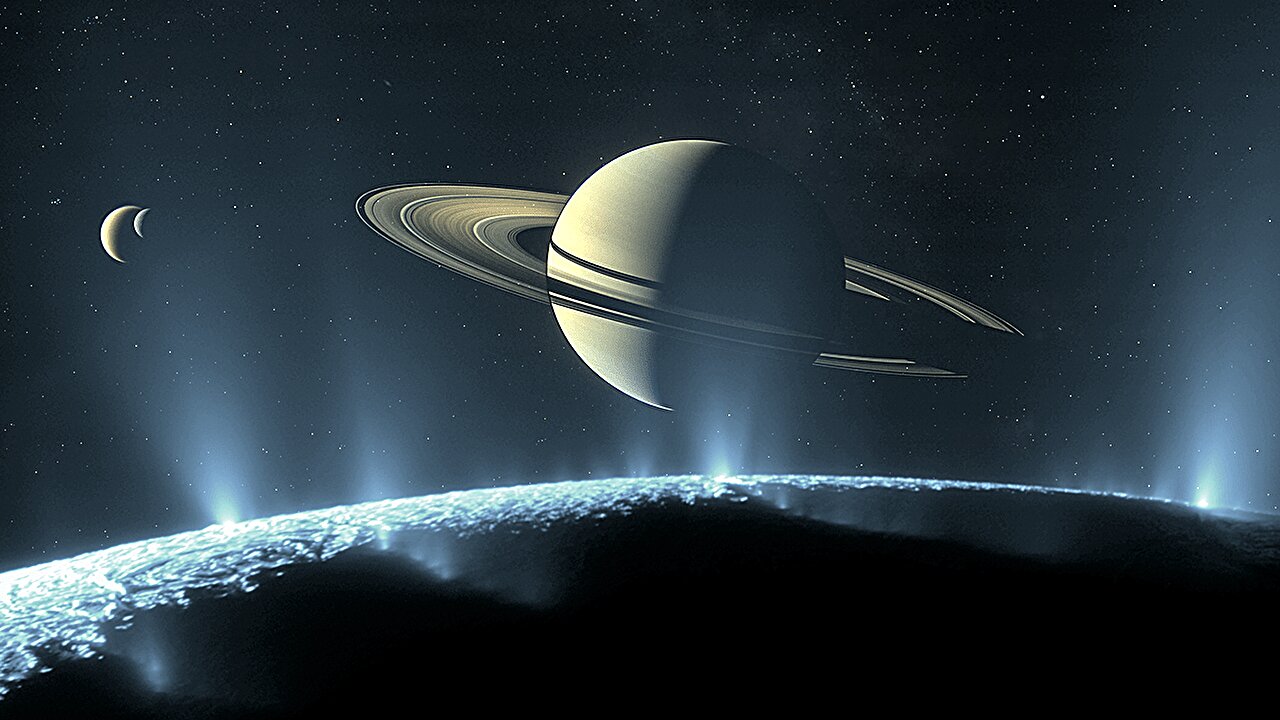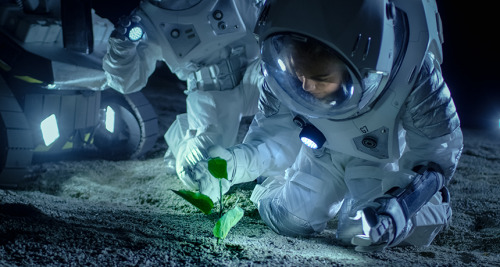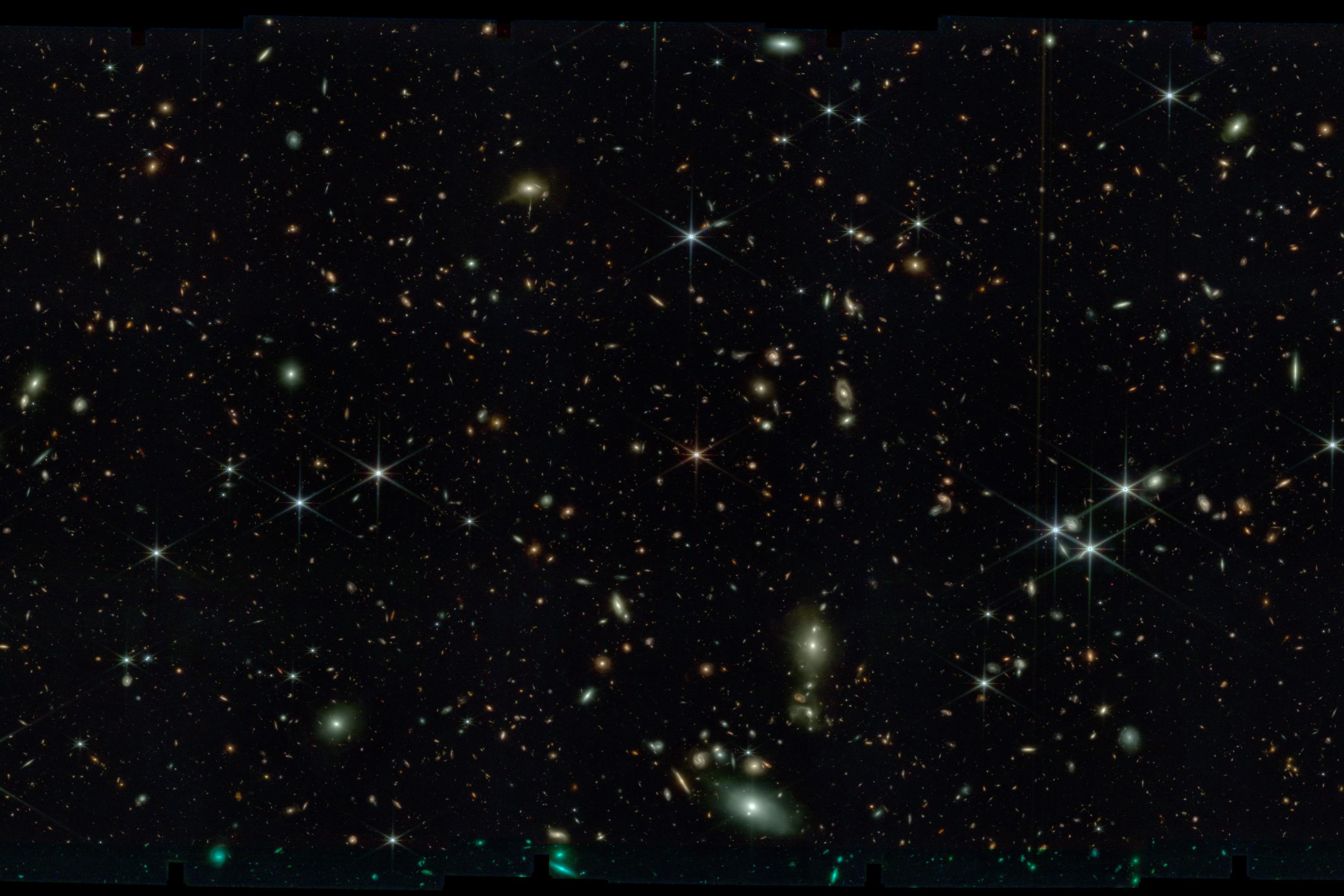Geysers of ocean water—potentially containing clues to the origin of life—erupt through ice fractures on Saturn’s moon Enceladus in this illustration. Credit: NASA Goddard Space Flight Center
Does life exist beyond Earth? One of the most compelling places to consider this possibility is Enceladus, a moon of Saturn with a liquid water ocean encased in a frozen shell. There, plumes of water spray from ice fractures into space, and spacecraft observations of these geysers suggest that Enceladus has all the chemical building blocks necessary for life.
It is no surprise that robotic missions to search for life on Enceladus are in development. On the brink of this new era of space exploration, Davila and Eigenbrode propose a strategic research framework for studying Enceladus and similar ocean worlds.
Their proposed framework, published in the Journal of Geophysical Research: Biogeosciences, is based on the theory of organic chemical evolution, the idea that life results from a series of chemical steps that began with the big bang. As stars and planets formed, simple molecules interacted to form increasingly complex molecules and, eventually, the first cell.
Scientists are still working out the exact steps that led to life on Earth, given that there aren’t well-preserved records from before life originated. However, icy ocean worlds like Enceladus could hold a wealth of new clues about how life begins to get off the ground—or doesn’t.
Therefore, instead of simply asking whether Enceladus is inhabited, the researchers propose asking, “What is the extent of organic chemical evolution in Enceladus’s ocean?” This shift in focus could allow for deep learning regardless of whether Enceladus is currently inhabited, on its way to developing life, past a time when it held life, or on a path unlikely to lead to life.
With this approach, missions to Enceladus would not search only for direct evidence of life. They would first seek to determine the molecular and structural properties of the complex carbon-containing molecules we already suspect are in the ocean. Supplemental studies could search for more complex organic compounds with biochemical properties, cell-like objects, and any evidence of evolutionary adaptation.
Structuring missions in this way, the researchers say, is a lower-risk strategy that could provide high-reward insights into life in the universe.
In other words, if life exists on Enceladus and other ocean worlds, this approach would help us find it. If not, we’d learn far more than if we’d just looked for life.
More information:
A. F. Davila et al, Enceladus: Astrobiology Revisited, Journal of Geophysical Research: Biogeosciences (2024). DOI: 10.1029/2023JG007677
This story is republished courtesy of Eos, hosted by the American Geophysical Union. Read the original story here.
Citation:
Looking for life on Enceladus: What questions should we ask? (2024, May 9)
retrieved 4 June 2024
from https://phys.org/news/2024-05-life-enceladus.html
This document is subject to copyright. Apart from any fair dealing for the purpose of private study or research, no
part may be reproduced without the written permission. The content is provided for information purposes only.



